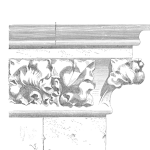
The power of a strong team cannot be overstated. Teams drive innovation, solve complex problems, and deliver results that no individual could achieve alone. Yet, successful teamwork doesn’t happen by chance—it requires intentional effort through team building.
Team building is the art and science of creating connections, fostering collaboration, and aligning individuals toward a common goal. While it’s often associated with trust falls and icebreaker games, effective team building goes far beyond these surface-level activities. It focuses on strengthening relationships, improving communication, and establishing a shared sense of purpose.
Why Team Building Matters
At its heart, team building is about creating an environment where people feel valued, respected, and motivated to work together. A cohesive team isn’t just a group of individuals completing tasks—it’s a dynamic network of mutual support and shared accountability.
When teams are built intentionally, the benefits ripple throughout the organization:
- Enhanced Communication
Team building activities break down communication barriers, encourage open dialogue, and help individuals understand each other’s strengths, preferences, and working styles. - Stronger Collaboration
Trust and mutual respect are the foundation of collaboration. When team members feel connected, they’re more likely to share ideas, take risks, and support one another in achieving common goals. - Higher Morale and Engagement
A team that works well together creates a positive work environment. This sense of camaraderie boosts morale, fosters engagement, and reduces turnover. - Improved Problem-Solving
Teams that trust one another are more willing to share ideas and work through challenges together, enabling them to address issues creatively and effectively.
Strategies for Effective Team Building
Building a high-performing team doesn’t require extravagant retreats or elaborate exercises. Instead, it’s about creating meaningful opportunities for connection and collaboration. Here are some practical strategies:
- Define a Clear Vision and Goals
Team members need to understand the bigger picture and how their contributions align with organizational objectives. A shared vision gives purpose to their efforts. - Encourage Open Communication
Create an environment where team members feel safe to share ideas, express concerns, and provide feedback. Regular check-ins and open forums help maintain transparency and trust. - Celebrate Successes
Recognizing team achievements, no matter how small, reinforces positive behaviors and builds a sense of pride and unity. - Invest in Development
Providing opportunities for skill-building, both individually and collectively, equips teams to handle challenges with confidence and resilience.
The Ripple Effect of Team Building
Imagine a manufacturing maintenance team that operates like a well-oiled machine. Through targeted team building efforts, technicians feel empowered to share knowledge, collaborate on solutions, and trust one another’s expertise. Downtime is minimized, efficiency improves, and morale soars.
The power of team building lies in its ability to transform groups of individuals into unified, high-performing teams. These teams don’t just achieve results—they create a culture of excellence that drives the entire organization forward.
Conclusion
Team building is more than an occasional activity; it’s an ongoing commitment to fostering connection and collaboration. By investing in the growth and cohesion of your team, you unlock potential that benefits not only the individuals involved but the organization as a whole. Strong teams are the foundation of success, and intentional team building is the key to making it happen.
 Ask a question or send along a comment.
Please login to view and use the contact form.
Ask a question or send along a comment.
Please login to view and use the contact form.
Leave a Reply